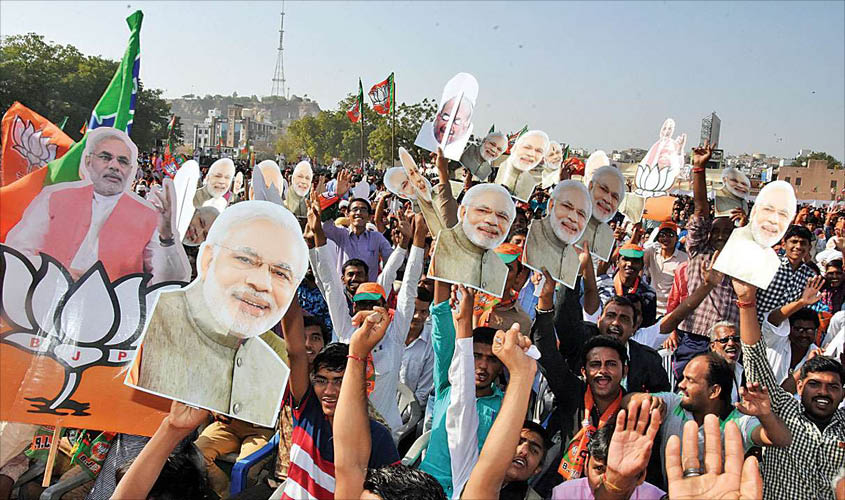The party has announced 408 candidates, which is 20 fewer than its tally of 428 in 2014. The Congress, on the other hand, has fielded candidates for 271 seats.
New Delhi: The Bharatiya Janata Party (BJP) has fielded the most number of candidates so far compared to other parties for the ongoing Lok Sabha elections. Sources said that the party may contest the highest number of Lok Sabha seats in its history. The party has so far announced 408 candidates, which is 20 fewer than its tally of 428 in 2014. The Congress, on the other hand, has fielded candidates for 271 seats. Other parties have not even crossed three digits as far as number of candidates is concerned.
BJP sources said that the party is likely to announce at least 30 more candidates. In that case, the party will be contesting the highest number of Lok Sabha seats.
There are 543 seats in the Lok Sabha. According to BJP sources, the party had fielded 433 seats in 2009, 364 in 2004 and 339 seats in 1999 elections.
The BJP is yet to announce its seven candidates for Delhi. The announcement was delayed as part of the wait-and-watch strategy amid seat-sharing talks between the Aam Aadmi Party (AAP) and Congress. The party has also not announced another eight candidates for Uttar Pradesh, which sends 80 members to the Lok Sabha.
Similarly, party sources said that it is yet to finalise names for eight seats in Madhya Pradesh, including Indore and Bhopal. In Punjab, no decision has been taken on the candidates for the three seats it will contest in alliance with the Shiromani Akali Dal (SAD). Similar is the case in Haryana and Rajasthan where two seats and one seat respectively are pending.
The number of BJP candidates is higher because the party has no alliances in Andhra Pradesh and Telangana this time around. Last time, the party had allied with the Telugu Desam Party (TDP) and contested on only 12 seats. However, in this election, the party is contesting all the 42 Lok Sabha seats in Andhra Pradesh and Telangana. Interestingly, however, the BJP is contesting on lesser number of seats in Bihar, Jharkhand and Assam because of alliances.
In terms of alliances also, the BJP-led National Democratic Alliance (NDA) is larger compared to United Progressive Alliance (UPA). The NDA has 38 small and big parties out of which about 20 are in electoral fray, whereas the UPA has only 16 parties. The BJP has left about 110 seats for its alliance partners.

